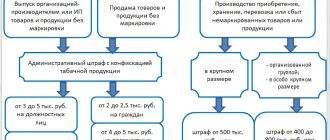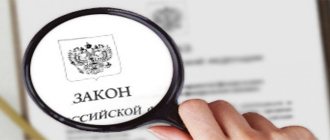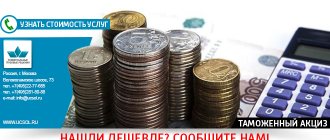Excise goods are middle distillates, which mean mixtures of hydrocarbons in a liquid state (at a temperature of 20 degrees C and an atmospheric pressure of 760 millimeters of mercury), obtained as a result of primary and (or) secondary processing of oil, gas condensate, associated petroleum gas, combustible shale, the density value of which does not exceed 930 kg/m3 at a temperature of 20 degrees. C, with the exception of certain products (clause 11, clause 1, article 181 of the Tax Code of the Russian Federation).
For the purpose of calculating excise taxes, a petroleum product is classified as middle distillates only if its technical characteristics fully comply with those specified in this definition. If at least one technical characteristic does not comply with this definition, the petroleum product for the purpose of calculating excise taxes is not classified as middle distillates (Letter of the Ministry of Finance of Russia dated 02/11/2016 N 03-07-06/7325).
The taxpayer must confirm, including through an examination, that he carries out excise-taxable transactions with middle distillates. From the available documents it should follow that we are talking about middle distillates (in accordance with the above physico-chemical characteristics).
Excise tax
Organizational and regulatory framework for the new excise taxation of the shipping business
The beginning of a new year is traditionally associated with tax changes. During a period of budget deficit, predictably, there is an increased interest in quickly collected indirect taxes; in 2016, this also affected the expansion of the list of excisable goods. The “Main Directions of Tax Policy for 2016 and the Planning Period 2022 and 2022,” developed by the Ministry of Finance, states that the priority will remain to prevent any increase in the tax burden on the economy, which will ensure the stability of the tax system and increase its attractiveness to investors. At the same time, tax policy must respond to modern global challenges, including, first of all, sanctions imposed against Russia and low oil prices. In the list of anti-crisis measures of this document, a separate item is excise taxation, which provides for changes in the list of excisable goods and excise tax rates.
Elena Lavrentieva, Doctor of Economics, Professor, Head. Department of Taxation and Accounting, State University of Murmansk and Russian Federation named after. adm. S.O. Makarova
Galina Plavinskaya, Candidate of Economic Sciences, Associate Professor, Professor of the Department of Taxation and Accounting of the State University of Medical and Russian Federation named after. adm. S.O. Makarova
Middle distillates
This also affected the shipping business from January 1, 2016, when the Federal Law of November 23, 2015 No. 323-FZ “On Amendments to Part Two of the Tax Code of the Russian Federation” in Art. 181 “Excisable goods” of the Tax Code of the Russian Federation (hereinafter referred to as the Tax Code of the Russian Federation), a new type of excisable goods has been introduced - middle distillates. At the same time, household heating fuel produced from diesel fractions of direct distillation and (or) secondary origin, boiling in the temperature range from 280 to 360 degrees Celsius, is excluded from the list of excisable goods.
Fuel costs are a significant cost item in the operational activities of shipowners, and the introduction of a new type of excise tax causes certain economic risks for the shipping business.
What are middle distillates and why are they important to shipping?
According to the provisions of the Tax Code of the Russian Federation (clause 11, clause 1, article 181), middle distillates for the purpose of calculating excise taxes are mixtures of hydrocarbons in a liquid state (at a temperature of 20° Celsius and an atmospheric pressure of 760 mm Hg), obtained as a result of primary and (or) secondary processing of oil, gas condensate, associated petroleum gas, oil shale, with the exception of straight-run gasoline, motor gasoline, diesel fuel, benzene, paraxylene, orthoxylene, aviation kerosene, simultaneously corresponding to the following physical and chemical characteristics:
• density not less than 750 kg/m3 and not more than 930 kg/m3 at a temperature of 20°C;
• the value of the temperature at which at least 90% of the mixture is distilled by volume (at an atmospheric pressure of 760 mm Hg) is in the range of not lower than 215°C and not higher than 360°C.
Low-viscosity marine fuel used by shipping companies corresponds to these characteristics.
In practice, manufacturers may have different names for petroleum products with identical characteristics, so upon receipt you must carefully check the manufacturer’s quality certificate, which must indicate the physical and chemical characteristics.
The Russian Ministry of Finance clarifies that for the purpose of calculating excise taxes, a petroleum product is classified as middle distillates only if it fully complies with the technical characteristics specified in the Tax Code of the Russian Federation. In case of any discrepancy, the petroleum product for the purpose of calculating excise taxes is not classified as middle distillates.
Until January 1, 2016, marine fuel of such parameters was not subject to excise tax. Moreover, it can be used as diesel fuel, for which the excise tax rate in 2015 was 3,450 rubles per ton. At a meeting of the State Duma Committee of the Russian Federation on Budget and Taxes, Director of the Department of Tax and Customs Tariff Policy of the Ministry of Finance Ilya Trunin Fr.
Thus, the amendments introduced to the Tax Code of the Russian Federation are aimed at eliminating the possibility of using criminal schemes that allow tax evasion. In order to prevent price manipulation, the excise tax rate on diesel fuel and middle distillates from January 1, 2016 was set at the same rate of 4,150 rubles per ton.
From April 1, 2016, in order to increase revenues of the budget system of the Russian Federation, excise tax rates on diesel fuel and middle distillates are again increased to 5,093 rubles per ton, and excise tax rates on motor and straight-run gasoline are also increased. It is predicted that the implementation of the proposed measures will provide additional revenue to Russian budgets in the amount of 89.3 billion rubles.
Object of taxation
What is determined by the object as the basis for excise taxation?
It is established by law that the object of excise taxation, in particular, is:
• sales on the territory of the Russian Federation by persons of excisable goods produced by them. Thus, the producer of middle distillates calculates the excise tax upon sale and presents it to the buyer. The buyer's presented excise tax amounts are taken into account in the cost of purchased excisable goods (clause 2 of article 199 of the Tax Code of the Russian Federation);
• receipt of middle distillates by a Russian organization that has a Certificate of Registration of an organization performing operations with middle distillates (hereinafter referred to as the Certificate), provided for in Art. 179.5 Tax Code of the Russian Federation. The receipt of middle distillates is recognized as their acquisition of ownership under an agreement with a Russian organization. This applies to shipowners when they purchase fuel for their operational activities.
What is the purpose, procedure for obtaining and validity of the Certificate?
Obtaining a Certificate is a right, not an obligation, but if a shipping company does not have this document, then when receiving such fuel it does not have an object of taxation, but it cannot apply excise tax deductions.
The procedure for obtaining a Certificate is regulated by tax legislation (Article 179.5 of the Tax Code of the Russian Federation) and regulatory documents of the Federal Tax Service of Russia.
First condition. It is issued to shipowners (Russian organizations) who own, by right of ownership or other legal basis, sea vessels, inland navigation vessels and (or) mixed (river-sea) vessels used for the purposes of navigation or merchant shipping and having the right to sail under the state flag RF.
It is important to emphasize that the legislator limited the scope of use of ships - for shipping or merchant shipping. The use of the sea and river fleet in other types of activities does not allow obtaining a Certificate. The concept of “shipping” is defined by the Inland Water Transport Code (Article 3.3), and “merchant shipping” by the Merchant Shipping Code (Article 2.2). In many areas, these types of activities coincide, but also reflect differences in the area of their use, as shown in Table. 1.
Table 1. The essence of the concepts of “shipping” and “merchant shipping”
| Shipping | Merchant shipping |
| Activities related to the use of vessels on inland waterways for: | Activities related to the use of vessels for: |
| – transportation of goods, passengers and their luggage – pilotage, ice pilotage and icebreaker assistance – raising sunken property – carrying out control activities, scientific research, educational, sports, cultural and other purposes | |
| – postal items | – fisheries |
| – towing ships and other floating objects | – exploration and development of mineral and other non-living resources of the seabed and its subsoil |
| – prospecting, exploration and mining of mineral resources | – search, rescue and towing operations |
| – construction, track, hydraulic, underwater technical and other similar works | – hydraulic engineering, underwater technical and other similar works |
| – rescue operations | – sanitary, quarantine and other control |
| – implementation of measures to protect water bodies, protect them from pollution and clogging | – protection and conservation of the marine environment |
Second condition. The certificate is issued by the departments of the Federal Tax Service of Russia for the constituent entities of the Russian Federation, in whose jurisdiction shipowners are registered as taxpayers. In this case, a state duty of 3,500 rubles is paid (clause 9.2 of Article 333.33 of the Tax Code of the Russian Federation).
Third condition. To obtain a Certificate, shipping companies submit an application and a package of the following documents to the tax authority:
• copies of documents confirming ownership (right of ownership, and (or) use, and (or) disposal) of the vessel;
• a copy of the certificate, possibly temporary, of the right to sail under the state flag of the Russian Federation.
Consequently, organizations renting ships can also receive a Certificate, which is confirmed by a letter from the Russian Ministry of Finance.
Fourth condition. The tax authority is obliged to issue a Certificate or send the applicant a written notice of refusal indicating the reason no later than 30 calendar days from the date of submission of the application and the established documents.
The validity of the Certificate begins on the first day of the tax period in which the shipowner presents the documents on the basis of which the Certificate was issued.
Fifth condition. The shipowner who has received the Certificate is obliged to submit to the tax authority quarterly, simultaneously with the excise tax return, copies of documents confirming the occurrence of the following circumstances:
• termination or emergence of property rights (rights of ownership, and (or) use, and (or) disposal) in relation to ships;
• changing the details of the documents on the basis of which the Certificate was issued and (or) documents confirming the emergence of rights in relation to ships.
Sixth condition. The validity of the Certificate may be suspended by the tax authority that issued it if the organization fails to comply with the legislative requirements for the calculation and payment of excise taxes. In this case, a period for eliminating the identified violations is established, which cannot exceed six months. Such a decision is sent to the taxpayer within three days from the date of its adoption.
After eliminating the violations, the shipowner is obliged to notify in writing the tax authority that issued the Certificate. Next, the tax authority makes a decision to renew or cancel the Certificate, and informs the taxpayer in writing within three days from the date of receipt of the notice of elimination of violations.
Seventh condition. The decision to cancel the Certificate may be made by the tax authority that issued it in the following cases:
• submission by the organization of an application for cancellation of the Certificate - from the date specified in such application;
• failure to eliminate violations within the prescribed period.
The decision to cancel the Certificate must be transferred to the organization within three days from the date of adoption of such a decision against a receipt or in another way indicating the date of its receipt.
In addition, the validity of the Certificate is terminated if it is lost by the organization.
It is important to emphasize that if the document in question is canceled or lost, the organization has the right to apply to the tax authority to obtain a new Certificate in the prescribed manner.
Excise tax amount
How is the tax base formed and the excise tax on middle distillates calculated?
The tax base (NBacc.av.d.) is recognized as the volume of middle distillates (Qav.d.) in physical terms on the day they are received by the shipowner holding the Certificate.
NBC.avg.d. = Qav.d. (1)
According to the general rule (clause 1 of Article 200 of the Tax Code of the Russian Federation), when calculating the amount of excise tax transferred to the budget (Abd.), the taxpayer has the right to reduce the amount of accrued excise tax (Anach.) based on the tax base and rate (Sav.d.) by tax deductions (TD).
Anach. = NBacc.avg.d. x Sav.d. (2)
Abyud. = Anach. – NV (3)
For Russian organizations, including shipowners who have a Certificate and receive middle distillates, a special procedure for applying tax deductions has been determined (clause 22 of Article 200 of the Tax Code of the Russian Federation).
Subject to deductions are the excise tax amounts multiplied by the coefficient (K), calculated upon receipt of middle distillates upon presentation of the established package of documents (clause 22 of Article 201 of the Tax Code of the Russian Federation):
Abyud. = Anach. – HB x K (4)
• when using the resulting middle distillates for bunkering (refueling) of water transport vessels, the deduction is applied with a coefficient of 2, i.e. K = 2;
Abyud. = Original – HB x 2 (5)
• in other cases of disposal (use) of the resulting middle distillates, a coefficient equal to 1 is applied, i.e. K = 1;
Abyud. = Anach. – HB x 1 (6)
The legally established application of an increasing coefficient to tax deductions objectively does not allow an increase in the tax burden for shipowners who have a Certificate, i.e. registration of this document is economically beneficial for the shipping business.
We emphasize that middle distillates have been included in the list of excisable goods since January 1, 2016; therefore, the formation of the tax base and the application of tax deductions are carried out for transactions that were carried out since the beginning of 2016, despite the fact that petroleum products could be obtained at prices that did not include excise tax
The package of documents on the basis of which the above tax deductions are applied includes:
• copy of the Certificate;
• a copy of the contract for the supply (purchase and sale) of fuel, which for the purpose of calculating excise taxes is classified as middle distillates, between the shipowner and the Russian organization that supplies the specified fuel;
In addition, when the obtained middle distillates are used by the shipowner for bunkering (refueling) of ships (installations, platforms located in internal sea waters, in the territorial sea, on the continental shelf of the Russian Federation, in the exclusive economic zone of the Russian Federation or in the Russian part (Russian sector) bottom of the Caspian Sea), exploited on the right of ownership or other legal basis, in addition to the specified documents, it is necessary to submit copies of:
• register of invoices, and (or) acts of acceptance and transfer of fuel, and (or) other documents for the supply of fuel related to middle distillates, confirming the fact that the taxpayer has received such fuel. The specified register is compiled in any form and must include the following information: name of the document, date and number of the document for the supply of fuel, type of fuel, amount of fuel filled;
• register of bunker receipts, and (or) invoices, and (or) claims, and (or) orders confirming the actual receipt of middle distillates. The specified register is compiled in any form, reflecting: the name of the document, its date and number, place of bunkering (refueling) (port, where applicable), type of fuel, amount of fuel filled in tons;
• fuel report, compiled in any form, confirming the actual use of fuel related to middle distillates.
All of the above documents are signed by the head of the shipowner's organization or an authorized representative.
Payment of excise tax
Payment of excise duty is made at the location of the shipowner-taxpayer no later than the 25th day of the third month following the expired tax period. The tax return is submitted within the same time frame and before the relevant amendments are made, the procedure for filling it out is established in a letter from the Federal Tax Service of Russia.
The amount of excess tax deductions over the amount of accrued excise tax is subject to offset against current and (or) upcoming payments for this tax in the next tax period. In addition, for shipowners who have a Certificate, the amount of excess tax deductions over the accrued excise tax is taken into account as part of the shipowner's non-operating income (clause 24 of Article 250 of the Tax Code of the Russian Federation).
How will the introduction of excise taxes on middle distillates affect the economic performance of a shipping company in the presence and absence of a Certificate?
Calculations were made of the main economic indicators of a shipping company per 1 ton of purchased fuel - middle distillates, which are presented in table. 2.
Table 2. Costs of a shipping company when purchasing 1 ton of middle distillates
| Business transactions | Amount, rub. | |
| 1. Manufacturer of middle distillates | ||
| 1.1. Sales of produced fuel | 20 000 | |
| 1.2. Excise tax charged | 4150 | |
| 1.3. VAT charged | 4347 | |
| Total | 28 497 | |
| 2. Bunkering company selling middle distillates to a shipping company | ||
| 2.1. Fuel received from the manufacturer, including: – excise tax – VAT | 28 497 4150 4347 | |
| 2.2. Sales of purchased fuel: – taking into account the extra charge (15%): RUB 20,000*15% – taking into account the excise tax of the fuel manufacturer: RUB 23,000. + 4150 rub. – VAT charged: RUB 27,150*18% | 23 000 27 150 4887 | |
| Total | 32 037 | |
| 3. Shipping company purchasing middle distillates | ||
| All purchased fuel is used for bunkering of ships | Availability of Certificate | |
| There is | No | |
| 3.1. Cost of fuel received, including: – VAT – cost of fuel, including excise tax of the fuel manufacturer | 32 037 4887 27 150 | 32 037 4887 27 150 |
| 3.2. Excise duty | 4150 | — |
| 3.3. Tax deductions K = 2 (RUB 4,150 * 2) | 8300 | — |
| 3.4. Calculation of excise tax reimbursed from the budget: Abyud. = Anach. – HB * 2; Abyud. = 4150 rub. – 8300 rub. = –4150 rub. | 4150 | — |
| 3.5. Non-operating income (other things being equal), Dvnereal. | 4150 | — |
| 3.6. Profit tax on non-operating income (other things being equal), ∆Нpr. out of reality | 830 | — |
| 3.7. Financial result for non-operating operations (other things being equal): Dvnereal. – ∆Npr. out of reality | 3320 | — |
The introduction of excise taxes on middle distillates is a new aspect in the taxation of shipping activities, and there is not yet sufficient practice to analyze the economic consequences of such an innovation. However, it is already right to conclude that it is advisable for shipowners to issue a Certificate in order to achieve a positive financial result when purchasing fuel, the costs of which occupy a significant share of the total cost of transportation.
Marine News of Russia No. 9 (2016)
| Return to section | Sea transport |
Corresponding changes have been made to paragraph 1 of Article 193 of the Tax Code of the Russian Federation.
Deadlines for payment of excise taxes
The general deadline for paying excise duty is no later than the 25th day of the month following the expired tax period - calendar month (Article 192, paragraph 3 of Article 204 of the Tax Code of the Russian Federation). If the last day of the period falls on a weekend, a non-working holiday and (or) a non-working day, the expiration date of the term is considered to be the next working day (Clause 7, Article 6.1 of the Tax Code of the Russian Federation).
Taxpayers who have a certificate of registration of a person performing operations for processing middle distillates, when performing operations for processing middle distillates, pay excise tax no later than the 25th day of the third month following the expired tax period (clause 3.1 of Article 204 of the Tax Code of the Russian Federation).
In a number of cases, when carrying out operations with middle distillates specified in paragraphs. 29, 30 and (or) 31 clause 1 art. 182 of the Tax Code of the Russian Federation, payment of excise tax can be made no later than the 25th day of the sixth month following the tax period in which the corresponding transactions were carried out (clause 3.2 of Article 204 of the Tax Code of the Russian Federation).
In general, excise tax is paid at the place of production of goods. When performing transactions with middle distillates, recognized as an object of taxation in accordance with paragraphs. 29 clause 1 art. 182 of the Tax Code of the Russian Federation, excise tax is paid at the location of the taxpayer, and when performing transactions in accordance with paragraphs. 30 and 31 clause 1 art. 182 of the Tax Code of the Russian Federation - at the location of the taxpayer and (or) at the location of separate divisions in terms of the operations they carry out (clause 4 of Article 204 of the Tax Code of the Russian Federation).
The taxpayer may determine the location of such operations at his own discretion, in particular, based on one of the following criteria: location of the parent organization (separate division) purchasing middle distillates under the contract; the location of the parent organization (separate division) where middle distillates are supplied (Letter of the Federal Tax Service of Russia dated October 29, 2019 N SD-4-3 / [email protected] “On excise taxes”).
What are middle distillates
This year, the Russian Ministry of Finance clarified: for the purpose of calculating excise taxes, middle distillates are mixtures of hydrocarbons in a liquid state (at a temperature of 20 degrees Celsius and an atmospheric pressure of 760 millimeters of mercury):
- obtained as a result of primary and (or) secondary processing of oil, gas condensate, associated petroleum gas, oil shale, with the exception of straight-run gasoline, motor gasoline, diesel fuel, benzene, paraxylene, orthoxylene, aviation kerosene;
simultaneously corresponding to the following physical and chemical characteristics:
a) density not less than 750 kg/cubic. m and no more than 930 kg/cubic. m at a temperature of 20 degrees Celsius;
b) the value of the temperature at which at least 90 percent of the mixture is distilled by volume (at an atmospheric pressure of 760 millimeters of mercury) is in the range of not lower than 215 degrees Celsius and not higher than 360 degrees Celsius.
That is, a petroleum product is classified as middle distillates only if its technical characteristics fully comply with the above.
If at least one technical characteristic does not comply, the petroleum product is not classified as middle distillates for the purpose of calculating excise taxes (letter of the Ministry of Finance of Russia dated February 11, 2016 No. 03-07-06/7325).
Tax expert B.L. Swain
Bukhgalteriya.ru recommends
Invaluable experience in solving current problems, answers to complex questions, specially selected latest information in the press for accountants and managers. Magazines for accountants and entrepreneurs >>
What is middle distillate?
First, a new article 179.5 has been added, establishing the rules for obtaining a certificate of registration of organizations carrying out transactions with middle distillates, as well as cases in which the tax authority can suspend its validity or cancel the certificate. The amount of the state duty provided for issuing such a certificate has also been established - 3.5 thousand.
rub. Secondly, the wording of straight-run gasoline was clarified and a new type of excisable product was added - middle distillate (subclause
10. 11 clause 1 art. 181 of the Tax Code of the Russian Federation) Gazprom Neft sells petroleum products produced at its own enterprises: gasoline, diesel fuel, motor oils, jet fuel, bunker fuel and bitumen materials. The main technological challenges in oil refining today are associated with large-scale refinery modernization programs, which are currently being implemented by all oil companies in Russia . As part of the national project, Gazprom Neft is creating a new catalyst production facility and is also developing a unique technology that significantly increases the safety of the production of high-octane environmentally friendly gasoline. All secondary oil refining processes take place in the presence of catalysts. Liqueurs have been around since the time of the pharaohs, and their commercial production dates back to the Middle Ages, when alchemists, doctors and monks searched for the elixir of life.
This led to the creation of a large number of well-known liqueurs, bearing the names of the religious orders that first produced these drinks.
Liqueurs are used both in pure form and in a wide variety of mixed drinks, as well as for preparing all kinds of dinner dishes. The thermostatting of a biocatalyst based on immobilized microbial cells and a non-inoculated carrier included in the biocatalyst is carried out, infrared scanning of the surface of the biocatalyst and carrier is carried out using a highly sensitive infrared camera, and the thermal characteristics of the biocatalyst are obtained, such as the temperature distribution on its surface and the temperature difference
Taxable transactions and determining the date of their implementation
In particular, the following operations with middle distillates are subject to excise taxes (Article 182 of the Tax Code of the Russian Federation):
• sale, as well as transfer (under processing agreements, to a structural unit, as a contribution to the authorized capital, etc.) of goods by the manufacturer in the territory of the Russian Federation;
• acquisition of goods into ownership under an agreement with a Russian organization (when there is a certificate of registration of an organization performing operations with middle distillates, provided for in Article 179.5 of the Tax Code of the Russian Federation);
• posting by an organization that has a certificate of registration of a person performing operations for the processing of middle distillates, middle distillates produced as a result of the provision of services to it for the processing of raw materials (materials) owned by the specified organization by right of ownership;
• import of excisable goods into the territory of the Russian Federation and other territories under its jurisdiction;
• sale on the territory of the Russian Federation by certain Russian organizations to foreign organizations of middle distillates owned by these Russian organizations and exported outside the territory of the Russian Federation as supplies on water vessels in accordance with the law of the Eurasian Economic Union;
• receipt of middle distillates by an organization that has a certificate of registration of a person performing operations for processing middle distillates.
In general, the date of sale (transfer) of excisable goods is the day of shipment (transfer) of the corresponding excisable goods, including to the structural unit of the organization carrying out their retail sale (clause 2 of Article 195 of the Tax Code of the Russian Federation).
When selling middle distillates exported outside the territory of the Russian Federation as supplies on water vessels to foreign organizations in accordance with the law of the EAEU (clause 30, clause 1, article 182 of the Tax Code of the Russian Federation), the date of sale is recognized as the last day of the month in which the full package of documents is collected , provided for in paragraph 23 of Art. 201 Tax Code of the Russian Federation.
For transactions related to taxation upon receipt of middle distillates (clauses 29 and 32 of clause 1 of Article 182 of the Tax Code of the Russian Federation), the date of their receipt is recognized as the day of their receipt by a Russian organization that has the appropriate certificate.
For the operation specified in paragraphs. 32 clause 1 art. 182 of the Tax Code of the Russian Federation, the date of receipt of middle distillates is the day of their receipt by a Russian organization that has a certificate provided for in Art. 179.6 of the Tax Code of the Russian Federation, and (or) in documents submitted by the specified person in accordance with clause 20 of Art. 179.7 Tax Code of the Russian Federation.
When an organization registers middle distillates produced as a result of the provision of services for processing raw materials (materials) owned by the specified organization by right of ownership (clause 33, paragraph 1, article 182 of the Tax Code of the Russian Federation), the date of capitalization of middle distillates is recognized as the day of their receipt by the organization that has relevant certificate.
GAS OIL is
Gas oil is a mixture of hydrocarbons and impurities (mainly sulfur.
nitrogen and oxygen-containing), boiling away at temperatures from 200 to 400 ° C during the distillation of oil. Gas oil is mainly used as a component of diesel fuel... Oil and gas microencyclopedia GAS OIL - GAS OIL, oil fractions obtained during its atmospheric (bp 270-360°C) or vacuum (350-500°C) distillation.
In accordance with subparagraph 11 of paragraph 1 of Article 181 of the Tax Code of the Russian Federation (hereinafter referred to as the Code), for the purpose of calculating excise taxes, middle distillates are mixtures of hydrocarbons in a liquid state (at a temperature of 20 degrees Celsius and an atmospheric pressure of 760 millimeters of mercury), obtained as a result of primary and (or) secondary processing of oil, gas condensate, associated petroleum gas, oil shale, with the exception of straight-run gasoline, motor gasoline, diesel fuel, benzene, paraxylene, orthoxylene, aviation kerosene, simultaneously corresponding to the following physical and chemical characteristics: temperature indicator value, at of which at least 90 percent of the mixture is distilled by volume (at an atmospheric pressure of 760 millimeters of mercury), is in the range of not lower than 215 degrees Celsius and not higher than 360 degrees Celsius.





